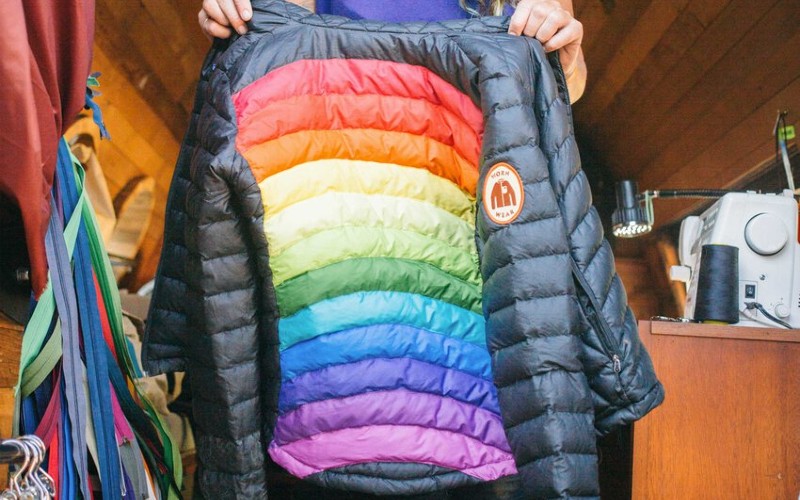In recent years, sustainability has become an increasingly critical topic for businesses worldwide. Driven by climate change concerns and pressure from consumers and stakeholders alike, many companies are taking steps towards reducing their carbon footprint and adopting more environmentally friendly practices. Some leading pioneers in this movement include Patagonia, Lottoland, Tesla, and Ikea.
So, let’s learn a bit more about each of these four environmentally conscious businesses.
Patagonia
Since 1973, Patagonia – an outdoor clothing and gear company – has been at the forefront of sustainable business practices. Their mission is to build superior products without causing unnecessary harm and use business as a catalyst for change on Earth’s behalf. This commitment is evident throughout every step of their operations as well as in their products.
Patagonia’s products are engineered for environmental sustainability and long-lasting performance. To this end, the company prioritizes using sustainable materials in its clothing and gear, such as organic cotton and recycled polyester. Furthermore, Patagonia has implemented numerous initiatives that reduce waste generation, such as its Worn Wear program, which encourages customers to repair and reuse their Patagonia apparel instead of buying new ones.
Patagonia’s dedication to sustainability goes beyond its products. The company is also dedicated to reducing its own carbon footprint through operations. In 2019, 69% of all materials used in Patagonia products were recycled, reducing carbon emissions.
Patagonia has long been an advocate for environmental causes, using its platform to spread awareness and drive change. The company has donated millions of dollars to environmental organizations and launched several campaigns that safeguard public lands and promote sustainable business practices.
Lottoland
The online lottery provider Lottoland is committed to a green future and environmental sustainability. Lottoland has pledged to become carbon neutral and has signed up for Amazon’s Climate Pledge. In addition, they have partnered with Tunley Engineering to conduct a thorough carbon assessment of their operations and make informed decisions to reduce their carbon footprint. Their efforts towards carbon reduction have been validated by assessments and conformity with ISO 14064.
Tesla
Sustainability has become an increasingly pressing concern for businesses around the world, driven by climate change concerns and growing pressure from customers and stakeholders. As a result, many companies are taking steps towards reducing their carbon footprints and adopting more eco-friendly practices – Tesla is one of the leaders in this movement.
Tesla, the electric vehicle and clean energy company, has been at the forefront of sustainable business practices since its founding in 2003. Their mission is to accelerate the world’s transition towards sustainable energy sources – an ambition that is evident in everything they do – from their products to their operations.
Tesla’s signature product is its line of electric vehicles, designed to be environmentally friendly and energy-efficient. By using renewable energy to power its vehicles, Tesla has significantly reduced carbon emissions associated with transportation. Furthermore, these cars are built to last long-term with a focus on recyclability and minimising waste.
Tesla has also ventured into the energy sector, providing solar panels and battery storage solutions for homes and businesses alike. By offering renewable energy options, Tesla helps reduce our reliance on fossil fuels and the associated carbon emissions from energy production.
Tesla’s commitment to sustainability extends beyond its products. The company is dedicated to reducing its own carbon footprint through operations. In 2020, Tesla vehicles have played a pivotal role in speeding up the global transition towards sustainable energy sources. By driving these cars, an estimated 5.0 million metric tons of CO2e emissions were avoided annually.
Ikea
Ikea’s sustainability strategy is built upon four fundamental pillars: becoming energy and resource-independent, reducing waste, increasing recycling rates, using sustainable materials, and encouraging healthy lifestyle choices. To meet these ambitious targets, the company plans on becoming circular by 2030 and using only renewable energy by 2025.
One of IKEA’s greatest contributions to sustainability has been its investment in renewable energy sources. The company has constructed wind and solar power plants, with plans to produce more renewable energy than they consume by 2020. This has allowed IKEA to drastically reduce its carbon footprint and become one of the world’s leading corporate buyers of green energy.
IKEA has undertaken numerous initiatives to reduce waste and promote recycling. For example, they’ve introduced circular business models, such as their furniture take-back program, where customers can return used IKEA furniture to be resold or recycled. Furthermore, IKEA is making significant strides toward using sustainable materials like organic cotton and responsibly sourced wood.
One of IKEA’s most impressive initiatives when it comes to sustainability is its innovation in sustainable design. They’ve created products that use 85% less energy than traditional incandescent bulbs and introduced new items made from sustainable materials like KUNGSBACKA kitchen cabinets made from recycled wood and PET bottles.
IKEA’s commitment to sustainability has also extended into its supply chain. The company has implemented stringent ethical sourcing standards and worked to improve working conditions and wages for suppliers’ employees, enabling IKEA to guarantee that its products are not only eco-friendly but also ethically produced.
Takeaway
In conclusion, Patagonia, Tesla, and IKEA have made remarkable achievements toward creating a more sustainable future. These companies demonstrate the power of collaboration to achieve this goal. In addition, these companies have demonstrated their dedication to reducing their carbon footprint and advocating for environmentally-friendly practices through various initiatives. Patagonia’s commitment to transparency, Tesla’s investment in renewable energy, and IKEA’s innovative sustainable design are just a few examples of the companies leading the charge toward a greener future. With increasing pressure from consumers and stakeholders to prioritize sustainability initiatives, those companies that take steps toward reducing their environmental impact will enjoy an advantage going forward.

